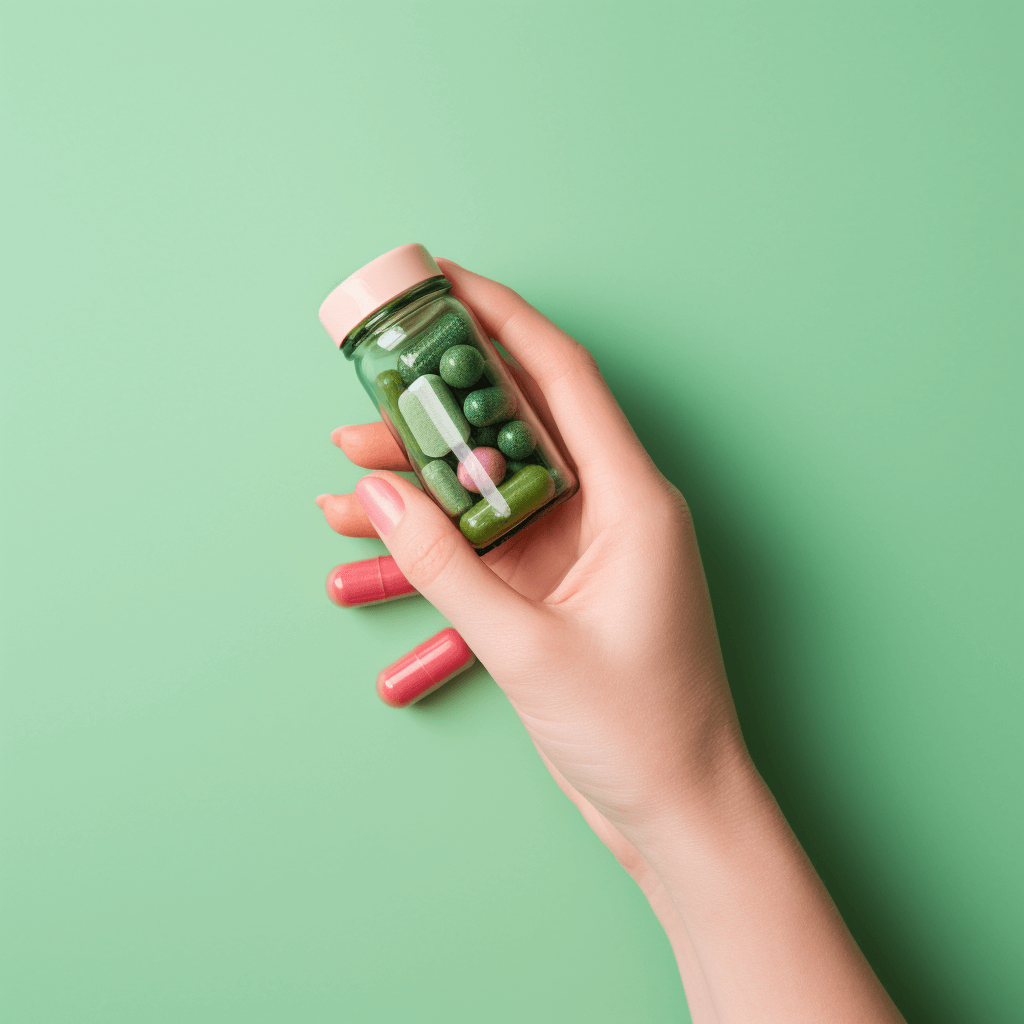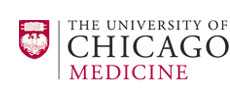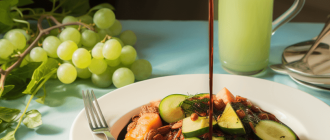
Effective Treatment Options and Lifestyle Modifications for Healing Ulcers
Ulcers are open sores that develop on the skin or mucous membranes. They can occur in various parts of the body, including the stomach, duodenum, and mouth. Ulcers can be painful and can significantly affect a person’s quality of life. However, with the right treatments and lifestyle changes, ulcers can be healed and managed effectively.
Medication is often prescribed to treat ulcers. Proton pump inhibitors (PPIs) and histamine receptor blockers are commonly used to reduce the production of stomach acid, which helps promote healing. Antibiotics may also be prescribed if the ulcer is caused by an infection, such as Helicobacter pylori. It is important to follow the prescribed medication regimen and complete the full course of antibiotics to ensure effective treatment.
Dietary and lifestyle changes can also play a crucial role in healing ulcers. It is recommended to avoid foods and beverages that can irritate the stomach lining, such as spicy foods, alcohol, and caffeine. Instead, opt for a diet rich in fruits, vegetables, whole grains, and lean proteins. Eating smaller, more frequent meals can also help reduce stomach acid production and prevent irritation.
Stress management is another important aspect of ulcer healing. Stress has been linked to the development and exacerbation of ulcers. Engaging in stress-reducing activities, such as exercise, meditation, and hobbies, can help promote healing and prevent ulcer recurrence. It is also important to get an adequate amount of sleep to allow the body to heal and repair.
Healing ulcers requires a combination of medication, dietary and lifestyle changes, and stress management. It is important to work closely with a healthcare professional to develop a personalized treatment plan that addresses the underlying causes of the ulcer and promotes healing. By following these recommendations, individuals can effectively manage and prevent ulcers, leading to improved overall health and well-being.
Can duodenal ulcer be cured?
Yes, duodenal ulcers can be cured with the appropriate treatment and lifestyle changes. The main goal of treatment is to eliminate the underlying cause of the ulcer and promote the healing of the damaged tissue.
The most common cause of duodenal ulcers is a bacterial infection called Helicobacter pylori (H. pylori). Treatment usually involves a combination of antibiotics to eradicate the bacteria, as well as acid-suppressing medications to reduce stomach acid production.
In addition to medication, certain lifestyle changes can also help in the healing process. These include avoiding irritants like tobacco and alcohol, managing stress levels, and adopting a healthy diet that includes plenty of fruits, vegetables, and whole grains.
It is important to adhere to the prescribed treatment plan and make necessary lifestyle modifications to achieve a complete cure. Regular follow-up with a healthcare professional is also important to monitor the progress of the healing process and make any necessary adjustments to the treatment plan.
With proper treatment and lifestyle changes, most duodenal ulcers can be cured within a few weeks to a few months. However, it is important to note that recurrence is possible, especially if the underlying cause is not adequately addressed. Therefore, it is essential to continue practicing healthy habits even after the ulcer has healed to prevent future episodes.
If left untreated or not managed properly, duodenal ulcers can lead to complications such as bleeding, perforation, or obstruction. Therefore, seeking timely medical attention and following the recommended treatment plan is crucial for a successful cure.
Disclaimer: This article is for informational purposes only and should not be considered as medical advice. Always consult with a healthcare professional for proper diagnosis and treatment of duodenal ulcers.
Yes, duodenal ulcers can be cured with antibiotics and acid reducers
Duodenal ulcers, which are sores that develop in the lining of the duodenum (the first part of the small intestine), can be effectively treated and cured with a combination of antibiotics and acid reducers.
Antibiotics are prescribed to eradicate the presence of Helicobacter pylori (H. pylori) bacteria, which is a common cause of duodenal ulcers. These antibiotics work by killing the bacteria and preventing it from causing further damage to the stomach lining.
In addition to antibiotics, acid reducers such as proton pump inhibitors (PPIs) or histamine receptor blockers (H2 blockers) are often prescribed to reduce the production of stomach acid. By reducing the acidity in the stomach, these medications help to promote healing of the ulcer and prevent it from recurring.
The combination of antibiotics and acid reducers has been shown to be highly effective in curing duodenal ulcers. It is important to complete the full course of antibiotics as prescribed by the doctor, even if symptoms improve, to ensure that the H. pylori bacteria are completely eradicated.
In some cases, additional lifestyle changes may also be recommended to support the healing process. These may include avoiding certain foods or beverages that can irritate the stomach lining, quitting smoking, reducing stress levels, and maintaining a healthy diet and weight.
If left untreated, duodenal ulcers can lead to complications such as bleeding, perforation (a hole in the wall of the stomach or duodenum), or a blockage in the digestive system. Therefore, seeking prompt medical attention and following the prescribed treatment plan is crucial for successful healing of duodenal ulcers.
What foods heal a duodenal ulcer?
When it comes to healing a duodenal ulcer, a balanced and nutritious diet can play a crucial role. Certain foods have been found to promote healing and soothe the irritated lining of the stomach and small intestine. Here are some of the foods that can help heal a duodenal ulcer:
1. High-fiber foods: Fiber-rich foods like whole grains, fruits, vegetables, and legumes can help promote healing and improve digestion. They also help prevent constipation, which can worsen ulcer symptoms. Examples include brown rice, whole wheat bread, apples, broccoli, and lentils.
2. Probiotic-rich foods: Probiotics are beneficial bacteria that can help restore the balance of gut flora and promote healing. Foods like yogurt, kefir, sauerkraut, and kimchi are rich in probiotics and can help alleviate symptoms of a duodenal ulcer.
3. Lean proteins: Consuming lean proteins like poultry, fish, tofu, and beans can provide the necessary nutrients for healing while being easy on the digestive system. Protein is essential for tissue repair and growth.
4. Healthy fats: Including healthy fats in the diet can help reduce inflammation and promote healing. Foods like avocados, olive oil, nuts, and seeds are rich in healthy fats and can be beneficial for individuals with duodenal ulcers.
5. Foods rich in antioxidants: Antioxidants help protect the body from oxidative stress and promote healing. Including foods like berries, leafy greens, tomatoes, and bell peppers in the diet can provide a good amount of antioxidants.
6. Low-acidic foods: Consuming foods that are low in acidity can help reduce irritation and inflammation of the stomach lining. Examples include bananas, oatmeal, melons, and non-citrus fruits.
It is important to note that individual tolerances to certain foods may vary, and it is best to consult with a healthcare professional or registered dietitian for personalized dietary recommendations for healing a duodenal ulcer.
Probiotics like yogurt
Probiotics are live bacteria and yeasts that are good for your digestive system. They help keep your gut healthy by balancing the levels of bacteria in your stomach and intestines. Yogurt is a great source of probiotics and can be beneficial for healing ulcers.
When you have an ulcer, the balance of bacteria in your stomach can be disrupted, leading to increased inflammation and slower healing. Adding probiotics to your diet, like those found in yogurt, can help restore this balance and promote healing.
Yogurt contains Lactobacillus and Bifidobacterium strains of bacteria, which are known for their beneficial effects on the digestive system. These strains can help reduce inflammation, strengthen the stomach lining, and enhance the body’s ability to fight off harmful bacteria.
It’s important to choose yogurt that contains live and active cultures, as these are the probiotics that provide the health benefits. Look for labels that mention “live cultures” or “active cultures” to ensure you’re getting the most out of your yogurt.
Incorporating yogurt into your diet can be as simple as having a serving with breakfast or as a snack. You can also use yogurt as a base for smoothies or mix it with fruits and nuts for a nutritious and delicious treat.
However, it’s important to note that while probiotics can be beneficial for healing ulcers, they are not a substitute for medical treatment. It’s always best to consult with your healthcare provider for a comprehensive treatment plan.
High fiber foods
Consuming high fiber foods can help promote healing and prevent future ulcers. Fiber helps to regulate digestion and can decrease the risk of developing ulcers by promoting healthy bowel movements and reducing inflammation in the digestive system.
Here are some high fiber foods that you can incorporate into your diet:
- Whole grains such as brown rice, whole wheat bread, and oats
- Fruits and vegetables, especially those with skins and seeds such as apples, berries, and broccoli
- Legumes such as beans, lentils, and chickpeas
- Nuts and seeds, such as almonds, chia seeds, and flaxseeds
It is important to gradually increase your fiber intake and drink plenty of water to help your body process the fiber effectively. You may also want to consult with a healthcare professional or registered dietitian to determine the appropriate amount of fiber for your individual needs.
Remember to listen to your body and make adjustments as needed. If you experience any discomfort or worsening symptoms after consuming high fiber foods, it is best to consult with a healthcare professional for further guidance.
Vegetables and fruits
Eating a diet rich in vegetables and fruits is an important part of healing ulcers. These foods are packed with essential vitamins, minerals, and antioxidants that can help promote healing and reduce inflammation in the digestive tract.
Some vegetables that are particularly beneficial for ulcer healing include:
- Cabbage: Cabbage is known for its healing properties and can help soothe and protect the stomach lining.
- Carrots: Carrots are rich in beta-carotene, which can help repair damaged tissues and promote healing.
- Broccoli: Broccoli is a great source of sulforaphane, a compound that has been shown to have anti-inflammatory effects and may help reduce the risk of developing ulcers.
- Spinach: Spinach is packed with vitamins A and C, as well as iron, which can help support the healing process.
In addition to vegetables, fruits can also play a role in healing ulcers. Some fruits that are beneficial for ulcer healing include:
- Bananas: Bananas are gentle on the stomach and can help neutralize stomach acid, reducing irritation.
- Apples: Apples are high in fiber, which can help promote healthy digestion and prevent constipation.
- Blueberries: Blueberries are rich in antioxidants, which can help reduce inflammation and promote healing.
- Papaya: Papaya contains an enzyme called papain, which can help break down proteins and support digestion.
It’s important to note that while vegetables and fruits are generally beneficial for ulcer healing, some individuals may have specific dietary restrictions or sensitivities. It’s always a good idea to consult with a healthcare professional or registered dietitian before making any significant changes to your diet, especially if you have a history of ulcers or other digestive issues.
Is drinking water good for duodenal ulcer?
Drinking water is a simple and effective way to help manage and prevent duodenal ulcers. Staying hydrated is essential for maintaining overall health, and it can also play a crucial role in supporting the healing process of ulcers.
When you have a duodenal ulcer, the lining of the duodenum becomes irritated and inflamed. This can lead to symptoms such as abdominal pain, bloating, and heartburn. Drinking water can help alleviate these symptoms and provide relief.
Water helps to dilute stomach acid, which can help reduce the irritation and inflammation in the duodenum. It can also help to wash away any excess stomach acid and other irritants that may be present. Additionally, staying hydrated can help keep the digestive system functioning properly and promote regular bowel movements, which can aid in the healing process.
It is important to note that while drinking water can be beneficial for managing duodenal ulcers, it should not replace other recommended treatments or lifestyle changes. It is essential to follow a comprehensive treatment plan prescribed by a healthcare professional, which may include medications, dietary modifications, and stress management techniques.
Furthermore, it is important to avoid excessive consumption of acidic or carbonated beverages, as these can exacerbate symptoms and irritate the lining of the duodenum. Instead, opt for plain water or other non-acidic, non-caffeinated beverages.
Drinking water is a simple and effective way to support the healing process of duodenal ulcers. It helps to dilute stomach acid, wash away irritants, and maintain overall hydration. However, it should be used in conjunction with other recommended treatments and lifestyle changes for optimal results.
Yes, drinking water can help improve symptoms
When it comes to healing ulcers, making sure you stay hydrated is crucial. Drinking an adequate amount of water can help improve symptoms and promote healing.
Water helps to dilute stomach acid, reducing the risk of irritation and inflammation. It also helps to flush out toxins and promote a healthy digestive system.
In addition to drinking water, it’s important to avoid dehydrating beverages such as alcohol and caffeinated drinks. These can irritate the stomach lining and worsen ulcer symptoms.
Remember to drink water throughout the day, even when you’re not feeling thirsty. Aim for at least 8 glasses of water per day, or more if you’re physically active or live in a hot climate.
While drinking water is beneficial, it’s important to note that it is not a cure for ulcers. It should be used in conjunction with other treatments and lifestyle changes recommended by your healthcare provider.
So, don’t underestimate the power of water in improving ulcer symptoms. Stay hydrated and give your body the support it needs to heal.
What foods to avoid if you have a duodenal ulcer?
If you have a duodenal ulcer, it is important to be mindful of your diet to prevent aggravating the condition. Certain foods can irritate the lining of the duodenum, leading to increased pain and discomfort. Here are some foods to avoid:
- Spicy foods: Spices such as chili powder, hot peppers, and curry can stimulate acid production in the stomach, making the ulcers worse.
- Acidic foods: Citrus fruits and juices, tomatoes, and vinegar can increase stomach acid production and irritate the ulcers.
- Caffeine: Beverages like coffee, tea, and energy drinks can stimulate stomach acid secretion, which can worsen the symptoms of a duodenal ulcer.
- Alcohol: Alcohol can irritate the lining of the stomach and duodenum, leading to increased pain and inflammation.
- Fatty foods: High-fat meals, such as fried foods, fatty cuts of meat, and creamy sauces, can slow down the digestion process and increase the production of stomach acid.
- Carbonated drinks: Carbonated beverages like soda and sparkling water can cause bloating and increase pressure on the stomach, potentially worsening the symptoms of a duodenal ulcer.
It is important to note that everyone’s tolerance to certain foods may vary, so it is best to pay attention to your body’s reaction and avoid any foods that seem to trigger or worsen your symptoms. Consulting with a healthcare professional or registered dietitian can also provide personalized guidance on managing your diet with a duodenal ulcer.
Caffeine
Caffeine is a stimulant that is found in various beverages and foods, such as coffee, tea, energy drinks, and chocolate. While caffeine can provide a temporary boost in energy and alertness, it can also have negative effects on individuals with ulcers.
Caffeine can stimulate the production of stomach acid, which can irritate the lining of the stomach and worsen ulcer symptoms. It can also increase the risk of developing new ulcers or causing existing ulcers to bleed.
For individuals with ulcers, it is generally recommended to limit or avoid caffeine consumption. This can involve reducing or eliminating the intake of coffee, tea, energy drinks, and other caffeine-containing products.
However, it is important to note that caffeine affects individuals differently, and some people may be more sensitive to its effects than others. It may be helpful to keep a journal to track symptoms and determine if caffeine consumption is contributing to ulcer symptoms.
If caffeine is causing or worsening ulcer symptoms, there are various caffeine-free alternatives available. These include decaffeinated coffee and tea, herbal teas, and caffeine-free energy drinks. It is important to check the labels of packaged foods and beverages to ensure that they do not contain caffeine.
In addition to limiting caffeine consumption, individuals with ulcers can also benefit from making other lifestyle changes. These may include adopting a healthy diet that is low in spicy and acidic foods, quitting smoking, managing stress levels, and getting regular exercise.
Alcohol
Alcohol consumption can have a negative impact on the healing process of ulcers. It is advised to avoid or limit alcohol intake as it can irritate the lining of the stomach and increase the production of stomach acid, which can further aggravate ulcers. Additionally, alcohol can interfere with the effectiveness of medications prescribed for ulcers, making it harder for the body to heal.
If you have been diagnosed with an ulcer, it is important to discuss your alcohol consumption with your healthcare provider. They can provide guidance on how much, if any, alcohol is safe for you to consume while undergoing treatment for ulcers. In some cases, it may be necessary to completely abstain from alcohol until the ulcer has healed.
It is also important to note that alcohol can interact negatively with certain medications used to treat ulcers. This includes nonsteroidal anti-inflammatory drugs (NSAIDs) and aspirin, which are commonly used to manage pain and inflammation. These medications can increase the risk of gastrointestinal bleeding when combined with alcohol, further exacerbating ulcer symptoms.
In addition to avoiding or limiting alcohol consumption, adopting a healthy lifestyle can also aid in the healing of ulcers. This includes maintaining a balanced diet, avoiding trigger foods that may worsen symptoms, managing stress levels, and getting regular exercise. These lifestyle changes, along with the appropriate medical treatment, can help promote the healing of ulcers and prevent future complications.
Spicy and fried foods
Spicy and fried foods can be particularly irritating to the stomach lining and can worsen symptoms of ulcers. These types of foods are known to increase stomach acid production, which can further damage the already compromised lining of the stomach or small intestine.
Spicy foods, such as chili peppers and hot sauces, contain a compound called capsaicin, which can stimulate the release of stomach acid. This can lead to increased pain and discomfort for individuals with ulcers.
Fried foods, on the other hand, are high in unhealthy fats and can be difficult for the stomach to digest. When consumed in excess, these foods can increase inflammation in the body and contribute to the development of ulcers or worsen existing ulcers.
If you have an ulcer, it is best to avoid spicy and fried foods as much as possible. Instead, opt for a diet that is rich in whole grains, lean proteins, fruits, and vegetables. These foods are easier on the stomach and can help promote healing.
| Spicy and fried foods to avoid | Healthy alternatives |
|---|---|
| Hot peppers and hot sauces | Mild herbs and spices |
| Deep-fried foods (French fries, fried chicken) | Baked or grilled alternatives |
| Spicy snacks (chips, nachos) | Plain, unsalted snacks |
Is coffee good for duodenal ulcer?
Many people enjoy starting their day with a cup of coffee, but what about those who have a duodenal ulcer? It’s important to understand how coffee can affect this condition.
Caffeine:
Coffee contains caffeine, a stimulant that can increase stomach acid production. For individuals with a duodenal ulcer, this can be problematic as it may irritate the lining of the digestive tract and exacerbate symptoms.
Acidity:
Coffee is naturally acidic, which can further irritate the already sensitive lining of the duodenum. This increased acidity can potentially worsen symptoms such as pain, burning, and discomfort.
Individual Sensitivity:
While coffee is generally not recommended for individuals with duodenal ulcers, it’s important to note that everyone’s body reacts differently. Some individuals may be more sensitive to the effects of coffee, while others may be able to tolerate it in moderation.
Alternatives:
If you are a coffee lover with a duodenal ulcer, there are alternative options to consider. Decaffeinated coffee or herbal teas can be good substitutes that provide a similar warm and comforting sensation without the potential negative effects.
It’s always best to consult with a healthcare professional to determine what is best for your specific condition. They can provide personalized advice and guidance on managing your duodenal ulcer.
In conclusion, coffee is generally not recommended for individuals with a duodenal ulcer due to its caffeine content and acidity. However, individual tolerance may vary, and alternatives such as decaffeinated coffee or herbal teas can be considered. Consulting with a healthcare professional is always advisable to ensure the best course of action for managing your duodenal ulcer.
No, coffee can irritate the stomach lining
Coffee is a popular beverage enjoyed by many people, but it is important to note that it can irritate the stomach lining. The high acidity of coffee can increase the production of stomach acid, which can further irritate the already inflamed lining of an ulcer.
Furthermore, coffee is a stimulant that can increase gastric motility, causing food to move more quickly through the digestive system. This can be problematic for individuals with ulcers, as it can lead to increased irritation and discomfort.
It is recommended for individuals with ulcers to limit or avoid the consumption of coffee. Instead, they can opt for decaffeinated coffee or herbal teas that are less likely to irritate the stomach lining. Additionally, it is important to note that caffeine is found in other beverages and foods, such as energy drinks, chocolate, and some medications, so it is important to read labels and be mindful of caffeine intake.
Overall, while coffee may be a beloved beverage for many, individuals with ulcers should be cautious and limit their consumption to avoid further irritation of the stomach lining.
Would MALS be treated the same as an ulcer?
MALS, or Median Arcuate Ligament Syndrome, is a condition that affects the blood flow to the digestive organs, causing symptoms such as abdominal pain, nausea, and weight loss. While MALS and ulcers are both related to the digestive system, they are different conditions and require different treatment approaches.
Ulcers are sores that develop on the lining of the stomach or the upper part of the small intestine. They can be caused by factors such as bacterial infections, excessive acid production, or the use of nonsteroidal anti-inflammatory drugs (NSAIDs). The treatment for ulcers usually involves a combination of medications to reduce acid production, antibiotics to treat infections, and lifestyle changes to avoid triggers.
On the other hand, MALS is caused by the compression of the celiac artery by the median arcuate ligament, a fibrous band of tissue. This compression leads to reduced blood flow to the digestive organs, resulting in symptoms. The treatment for MALS typically involves surgery to release the compression of the artery and restore proper blood flow. This procedure, known as a celiac artery decompression, can be performed laparoscopically or through open surgery.
While both MALS and ulcers may cause abdominal pain and other digestive symptoms, the underlying causes and treatment approaches are different. It is important for patients to receive an accurate diagnosis to determine the appropriate course of treatment. If you are experiencing abdominal pain or other digestive symptoms, it is recommended to consult with a healthcare professional for a proper evaluation and diagnosis.
No, MALS treatments like surgery differ from ulcer treatments
Although both MALS (Median Arcuate Ligament Syndrome) and ulcers affect the digestive system, the treatments for these conditions are different.
When it comes to MALS, surgery is often the recommended treatment. The goal of the surgery is to relieve the compression of the celiac artery caused by the median arcuate ligament. This can be done through various techniques, including laparoscopic and open surgical approaches.
On the other hand, ulcer treatments focus on managing the symptoms and promoting healing. Medications such as proton pump inhibitors (PPIs) can be prescribed to reduce stomach acid production and give the ulcer time to heal. Antibiotics may also be used if the ulcer is caused by an H. pylori infection.
Lifestyle changes are also important for ulcer treatment. Patients are advised to avoid foods and beverages that can irritate the stomach lining, such as spicy foods, alcohol, and caffeine. They are also encouraged to quit smoking, as this can delay the healing process.
It’s important for individuals with either MALS or ulcers to consult with a healthcare professional to determine the most appropriate treatment plan for their specific condition. While surgery may be necessary for MALS, it is not typically used as a treatment for ulcers unless complications arise.
Questions and answers:
What are the common symptoms of ulcers?
The common symptoms of ulcers include abdominal pain, bloating, heartburn, nausea, and vomiting.
What are the different treatment options for ulcers?
The treatment options for ulcers include medication to reduce stomach acid, antibiotics to kill the bacteria causing the ulcer, and lifestyle changes such as avoiding certain foods and reducing stress.
Can ulcers be treated without medication?
While medication is often necessary to treat ulcers, lifestyle changes such as avoiding spicy foods, quitting smoking, and reducing stress can also help in the healing process.
How long does it take for an ulcer to heal?
The healing time for an ulcer can vary depending on the severity and location of the ulcer, but it typically takes a few weeks to several months for an ulcer to heal completely.
What are some natural remedies for healing ulcers?
Some natural remedies for healing ulcers include drinking aloe vera juice, consuming licorice root, eating foods high in probiotics, and taking supplements such as zinc and vitamin C.






